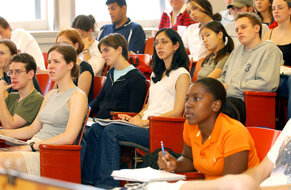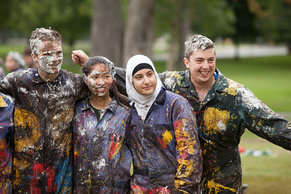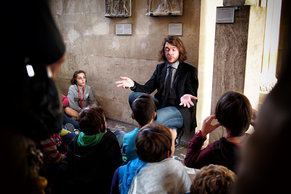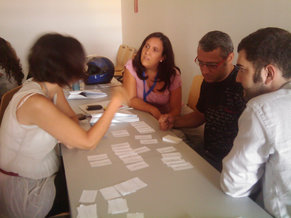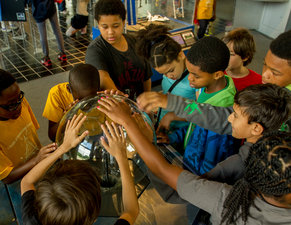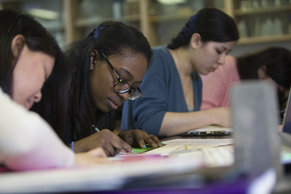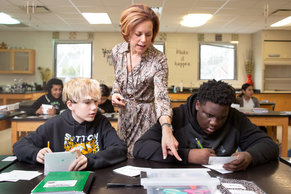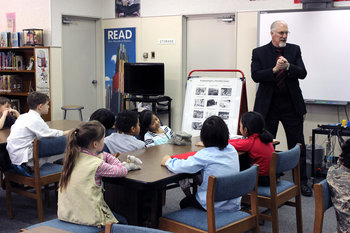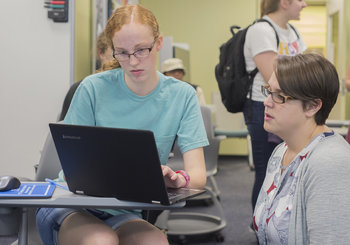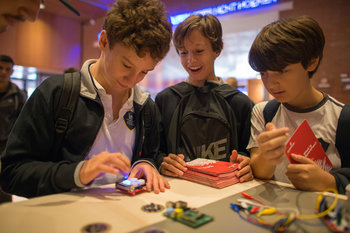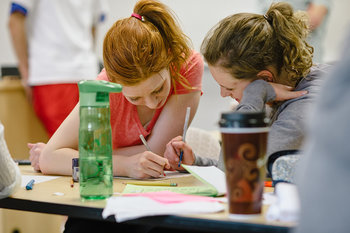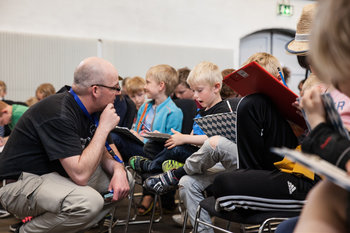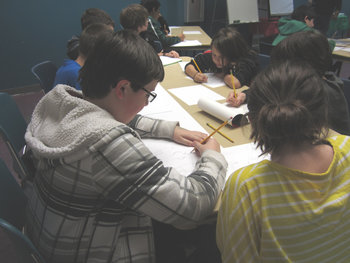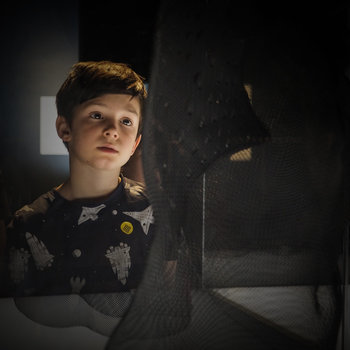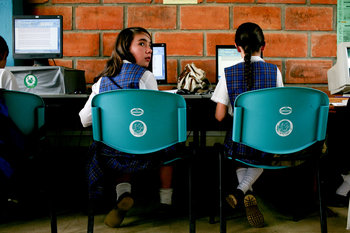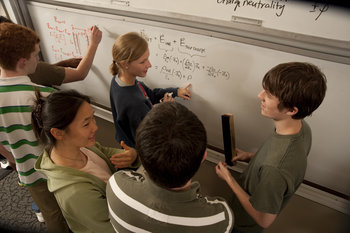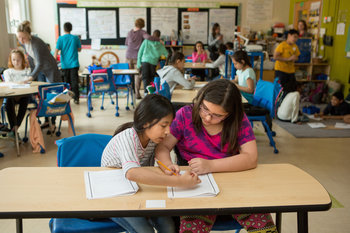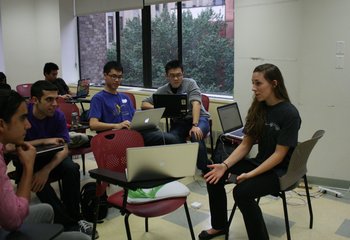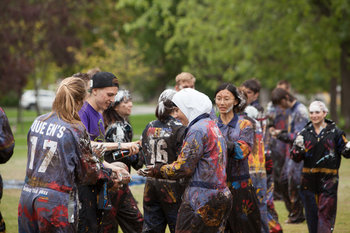Individualism
The philosophy that students are individuals with a unique character and potential.I believe teachers need to see every child's glass as half full and that requires knowing each student as an individual and being tenacious in trying to discover and understand their unique potential.
~ Dr Jim Hardin, Head of School, American School in Japan, "Welcome to ASIJ"
Rigor & Discipline
The principle that education requires diligence, concentration and disciplined effort.Eastern education prizes rigour and discipline, and students receive a first-rate understanding of core subjects across the student body, while Western approaches value individual creativity ... our teaching combines the strengths of both systems to create a unique educational approach.
~ Cardiff Sixth Form College, "Our Unique Approach", K-12 Private, Cardiff
Comradery
The goal of building a sense of comradery amongst students.... a body of pupils who care as much about the successes and happiness of their friends as about themselves.
~ King's College School Wimbledon "Head Master’s Welcome", K-12 Private, London
Student Leadership
Allowing students to lead things.We trust that children are instinctual learners, and we honor their leadership and partnership in their educational path.
~ Brightworks, "Our Vision", K-12 Private, San Francisco
Experiences
Offering students a diverse range of experiences in areas such as travel, intercultural communication, museums, nature, sport, music, drama, film, media, art, cultural and community participation.The opportunities for broadening the experience of students and staff through participation in sport, music, drama, the visual arts, and other cultural activities.
~ University of Cambridge, "The University's mission and core values"
School Culture
A school culture are the intangible elements of a school that emerge through shared experience over time.Tradition is important. Every school needs a culture. At Cardiff Sixth Form College, however, our culture is thoroughly in the present-day. Many English boarding schools rely on long histories and heritage. Here at Cardiff, we look forward.
~ Cardiff Sixth Form College, "Our Unique Approach", K-12 Private, Cardiff
Teaching Talent
The principle that a school is only as good as its teachers.What makes a school outstanding? Men and women who love their subject and love teaching it.
~ King's College School Wimbledon, "Head Master’s Welcome", K-12 Private, London
Continuous Improvement
Constantly challenging approaches to teaching and working to improve.Like our students, we work hard at our studies. We analyse our classes and teaching styles; constantly aiming to perfect. It is always possible to improve – there is a science to teaching.
~ Cardiff Sixth Form College, "Our Unique Approach", K-12 Private, Cardiff
Small Classes
Classes that are small enough to allow teachers to give attention to all students but not so small that they limit the potential for social interaction.Small class sizes with ample opportunities for students to interact with teachers and classmates.
~ Pingry, "Intellectual Engagement", K-12 Private, New Jersey
Attendance
The principle that a high rate of attendance is important and required.Due to the speed and depth of which subject matter is covered, scholars cannot afford to miss class.
~ Haas Hall Academy, "Our Goals", Public High School, Arkansas
Work Ethic
The principle that teachers and students will produce a high throughput of work at a high level of quality.... paired with its rigorous curriculum and demanding class schedule, encourages and influences students to constantly consider their daily approach to school and life.
~ Haas Hall Academy, "Our Goals", Public High School, Arkansas
Self-efficacy
Schools that help students develop a strong sense of direction and initiative.Helping learners self-initiate, direct and manage their learning, identify and explore their interests and passions, research and investigate, and develop strong senses of agency and self-efficacy.
~ American School in Japan, K-12 Private International School, "Our School"
Change
Keeping up with the pace of change to provide an education that is relevant to a time and place.Ongoing review and modifications of the curriculum to meet the demands of our rapidly-changing world.
~ Pingry, "Intellectual Engagement", K-12 Private, New Jersey
Adaptability
The principle that the future is unknown such that it is not the role of a school to teach the latest trends but rather to foster a sense of adaptability and leadership in students.We’re preparing our students for that unknown future by helping them develop the growth mindset, collaborative skills, social emotional learning and innovative thinking they’ll need to be successful.
~ American School in Japan, K-12 Private International School, "Welcome to ASIJ"
Multidisciplinary Collaboration
A commitment to research, programs, classes and experiences that span multiple subjects and disciplines. For example, a collaboration between engineers and artists.Many of the world's greatest challenges call for interdisciplinary collaboration. More focus should be given to utilising knowledge across disciplines and sectors in collaboration with national and global knowledge-intensive organisations and businesses.
~ University of Copenhagen, "Strategy"
Mastery
Learning things at significant depth before moving on to a new topic.... students move through a diverse course of study in a series of intensive immersions, emphasizing depth over breadth, integrating and contextualizing the development of skills and domain knowledge.
~ Brightworks, "How We Learn", K-12 Private, San Francisco
Risk Taking
An embrace of calculated risk taking such as trying new things where students may initially fail.We take risks and learn from failure.We are resilient.
~ American School in Japan, K-12 Private International School, "Our School"
Talent
Recruiting talented students with outreach programs and promotion of the school.To maintain and enhance its intellectual strength, the University must recruit and support students of outstanding potential at all levels, whatever their background. To achieve this, we will strengthen and expand outreach activities, based on rigorous evaluation of their effectiveness.
~ Oxford, "Strategic plan 2018-23"
Values
Schools may impose a set of values on students such as a religion or ideology.When you make the decision to come to Evergreen, you are also making the decision to become closely associated with its values.
~ Evergreen State College, "Evergreen’s Social Contract"
Character
The philosophy that students are expected to show character by being honest, respectful and working to cultivate a moral compass.We must lead them to distinguish right from wrong and then do what is right so they can be persuasive and courageous citizens.
~ Trinity School, "Mission Statement", K-12 Private Christian school, New York
Giving
The philosophy that students learn the value of volunteerism and giving back.We intend to prepare them to learn confidently for the rest of their lives and to give generously and joyfully to others.
~ Trinity School, "Mission Statement", K-12 Private Christian school, New York
Diversity & Tolerance
An embrace of diversity and intellectual diversity.Mutual respect and the tolerance it engenders undergird our community’s embrace of both intellectual diversity and the diversity of culture, ethnicity, gender, race, sexual orientation, and socio-economic background on our campus.
~ Horace Mann School, "Mission & Core Values", K-12 Private, Bronx
Wellbeing
Helping students to overcome problems they may face in their lives while attending your school.Supporting student wellbeing is at the heart of our approach to providing the greatest opportunity for all our students to excel.
~ Oxford, "Strategic plan 2018-23"
Political Activism
Historically, most schools viewed education as places of pure learning that added value to society with objective research and by helping students to become creative and critical thinkers. It is natural for political involvement to occur on a grassroots basis amongst students. However, it is possible for schools to become political organizations that push for a particular type of political thinking and action as part of their philosophy, culture and systems. This changes the nature of an institution such that it may be viewed as a political apparatus that uses students as political capital. In order to avoid this, most schools recognize the student right to political activism without getting involved or supporting one cause or viewpoint over another.As part of its dedication to active citizenship, the university encourages students, faculty, and staff to exercise their civic rights to participate as individuals in the political process. At the same time, no member of the university community should feel any institutional pressure to support a particular candidate or position.
~ Tufts University, "Policy on Political Activities"
Influence
The idea that a school creates change by creating and disseminating knowledge as opposed to direct political action.We will inform decision makers to influence policy.
~ Imperial College London, "Strategy 2015-2020"
Employability
Recognition of the role of education in preparing students for their professions.Broadly speaking, our job is to produce talented graduates for the job markets both in Denmark and globally.
~ University of Copenhagen, "Strategy"
Freedom of Speech
Freedom of speech is a basic element of educational philosophy and school culture. This is typically guaranteed as a right but is balanced with other rights and freedoms such as security of person and the right to human dignity. By definition, freedom of speech applies to speech that people find uncomfortable, wrong or deeply offensive. Popular speech relies on no such protection.Because the University is committed to free and open inquiry in all matters, it guarantees all members of the University community the broadest possible latitude to speak, write, listen, challenge, and learn . . . . [it] is not the proper role of the University to attempt to shield individuals from ideas and opinions they find unwelcome, disagreeable, or even deeply offensive.
~ University of Chicago, "Report of the Committee on Freedom of Expression", 2004, commonly known as the "Chicago Principles" of free expression
Academic Freedom
Academic freedom is the freedom of scholars, teachers and students to inquire, research, teach and communicate ideas and facts. In many cases, academic freedom is limited by the educational philosophy of a school. For example, there may be a requirement that teachers refrain from recruiting students into a political party, ideology, organization or religion. Alternatively, schools may specifically require teachers to align their lessons to a religion or ideology. The third option is to offer complete freedom such that teachers do as they see fit.There is not an institution of learning in the country in which freedom of teaching is more absolutely untrammeled than in the University of Chicago.
~ William Rainey Harper, First President of the University of Chicago
Summary
An educational philosophy is a set of beliefs, principles and approaches that are used to guide education. These also include a set of goals for education that lay out what an institution, program or individual views as the ultimate goals of learning.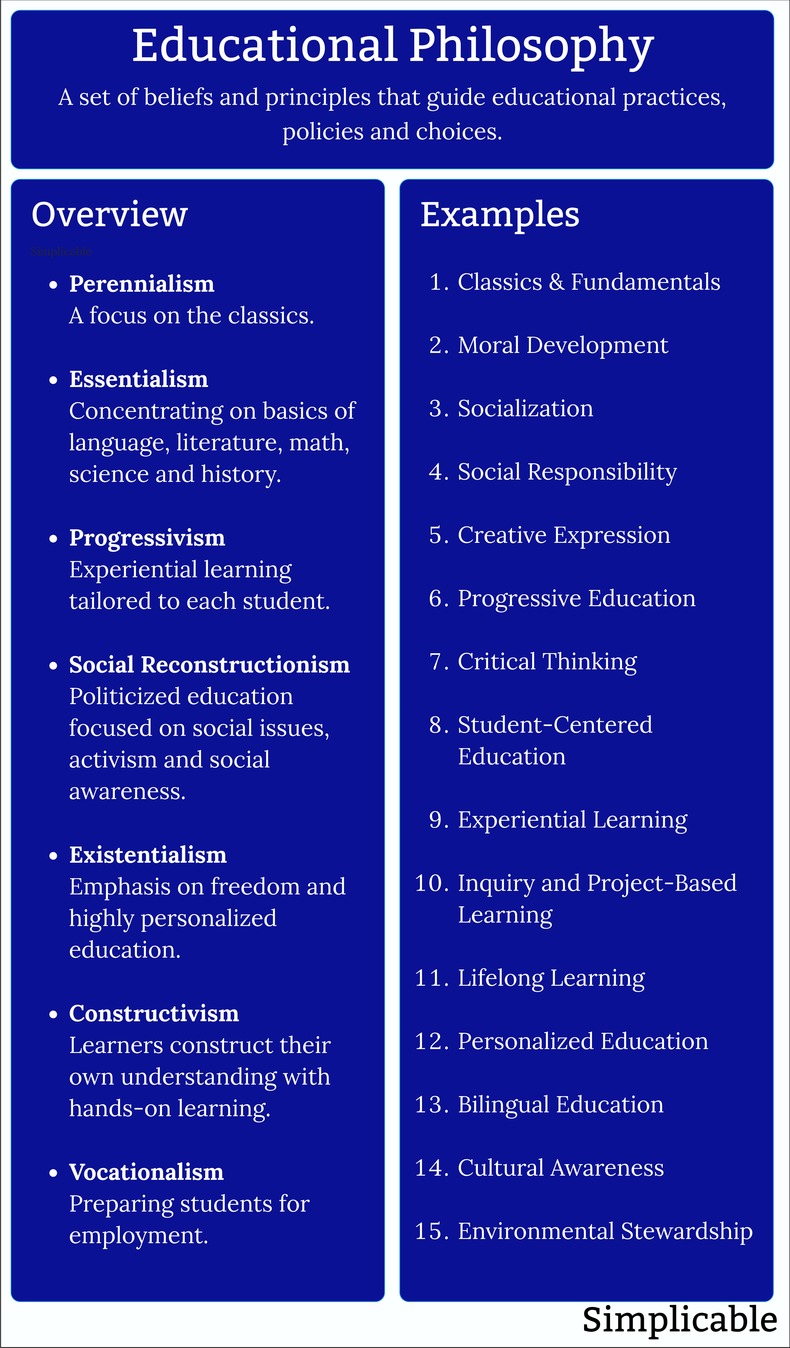
Discussion
Unlike the selections above, it is common for schools to state their philosophies using vague language that is risk adverse to the extent that it says virtually nothing. For example, platitudes that mention cliches such as transformation, innovation, knowledge and engagement.Unless otherwise noted, all quotes above are from the primary source of the schools themselves (from their respective websites). These were retrieved on January 30, 2020 and aren't updated to reflect the current philosophy of the school. Likewise, none of the quotes above reflect the entire philosophy of the respective schools and are simply fragments of their mission statements, strategies and other artifacts that may indicate their educational philosophy. Simplicable is not associated with any of the schools above and has no opinion of them.| Overview: Educational Philosophy | ||
Type | ||
Definition | A foundational approach to education adopted by a school as part of its mission, vision and strategy. | |
Related Concepts | ||

